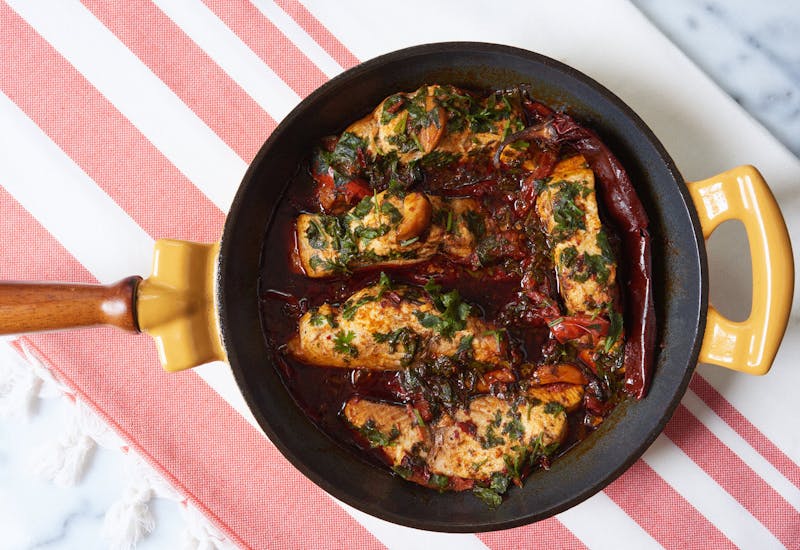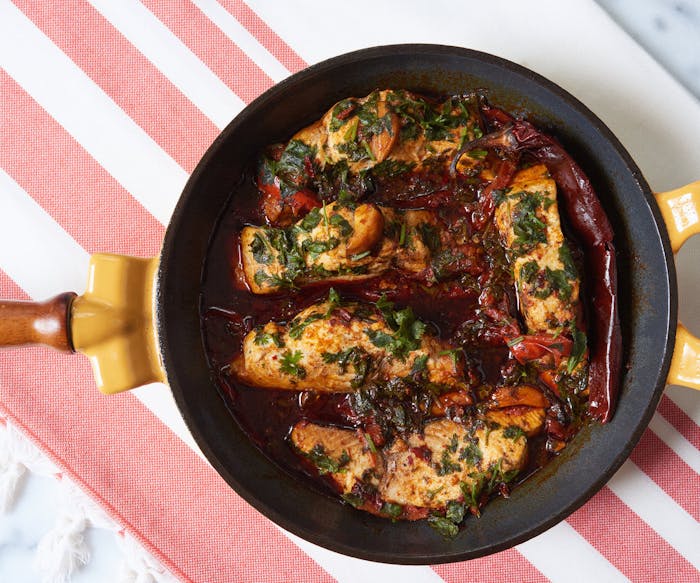Rinat Tzadok has vivid memories growing up in a home where pots of delicious things were constantly bubbling away on the stovetop. Fish and chicken stews, meatballs and vegetables, all tantalized Rinat with their smells. Just one thing—the kitchen was off limits. “My mom didn’t let me enter,” recalls Rinat. “She wanted to keep it neat. But I was obsessed.”
Rinat’s mother Rachel was born in Ouazzane, a town in northern Morocco, and immigrated to Israel with the rest of her family in 1958. Though Rachel shooed Rinat out of the kitchen, that didn’t stop her from learning how to make the family dishes. Rinat’s maternal grandfather, Moshe Hamo, and her aunt, Mesodi Hamo, were her culinary guides. When his wife passed away, Moshe started to cook the Moroccan staples that she had previously made. Rinat has fond memories of leaving school in the middle of the day to have a snack at her grandfather’s, or to simply peer in the pots of food simmering away. According to Rinat, he cooked something new every single day.
If Moshe gave Rinat the gift of access to the kitchen, it was her aunt, Mesodi, who was living with her father, who really took her niece under her wing. Despite the fact that Rinat’s aunt was partially paralyzed from polio, she spent many a day and night teaching Rinat the fundamentals of Moroccan cooking—traditional techniques, no short cuts. One of the dishes that Rinat learned was the Moroccan fish stew that so tantalized her at home.
This classic Moroccan-Jewish dish consists of fish cooked in a thick sauce made with three types of peppers (both dried and fresh, sweet and spicy), garlic and cilantro, as well as a robust spice oil that infuses the stew with complex flavor. Rinat makes this dish every Sabbath and serves it as a mid-course, after salatim and before the mains. “I feel that my passion for cooking and my exposure to good food, started right there,” she says. In her grandfather’s kitchen.

